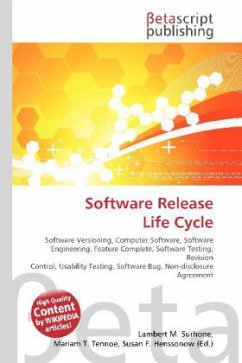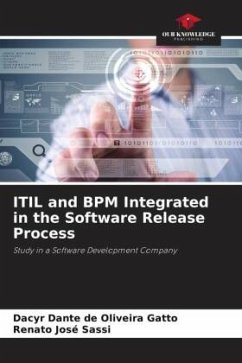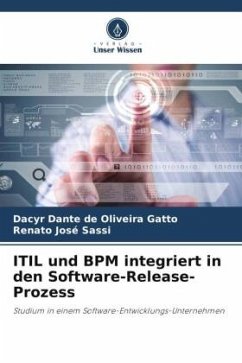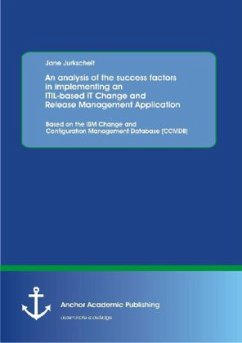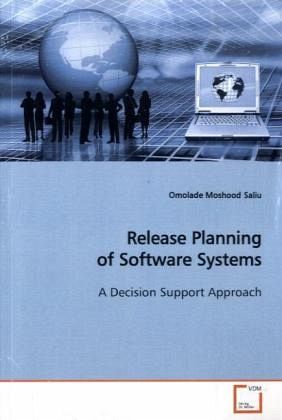
Release Planning of Software Systems
A Decision Support Approach
Versandkostenfrei!
Versandfertig in 6-10 Tagen
52,99 €
inkl. MwSt.

PAYBACK Punkte
26 °P sammeln!
Large software systems evolve because of the need toextend their functionality by adding new features ormodifying existing ones. Release planning for suchsystems can be extremely challenging. There are bothbusiness and technical perspectives to thischallenge. From a business perspective, new featurerequests originate from stakeholders with diverse(and often conflicting) business interests, who allwant their needs to be met, in spite of resource,schedule and other project constraints. From atechnical perspective, incorporating a new featureinto an existing software system, without breakingold f...
Large software systems evolve because of the need to
extend their functionality by adding new features or
modifying existing ones. Release planning for such
systems can be extremely challenging. There are both
business and technical perspectives to this
challenge. From a business perspective, new feature
requests originate from stakeholders with diverse
(and often conflicting) business interests, who all
want their needs to be met, in spite of resource,
schedule and other project constraints. From a
technical perspective, incorporating a new feature
into an existing software system, without breaking
old features, can be a tough balancing act. This book
discusses a novel and rigorous decision support
technique known as SoRPES that addresses these two
perspectives. The work provides a theoretical
foundation for, and a novel formulation of, release
planning as a multi-objective optimization problem.
Using results from empirical validation studies
conducted on real-world projects, the book presents
software practitioners with a useful tool to
generate release plans that are often more optimal
and more practical than could be obtained by existing
techniques.
extend their functionality by adding new features or
modifying existing ones. Release planning for such
systems can be extremely challenging. There are both
business and technical perspectives to this
challenge. From a business perspective, new feature
requests originate from stakeholders with diverse
(and often conflicting) business interests, who all
want their needs to be met, in spite of resource,
schedule and other project constraints. From a
technical perspective, incorporating a new feature
into an existing software system, without breaking
old features, can be a tough balancing act. This book
discusses a novel and rigorous decision support
technique known as SoRPES that addresses these two
perspectives. The work provides a theoretical
foundation for, and a novel formulation of, release
planning as a multi-objective optimization problem.
Using results from empirical validation studies
conducted on real-world projects, the book presents
software practitioners with a useful tool to
generate release plans that are often more optimal
and more practical than could be obtained by existing
techniques.





